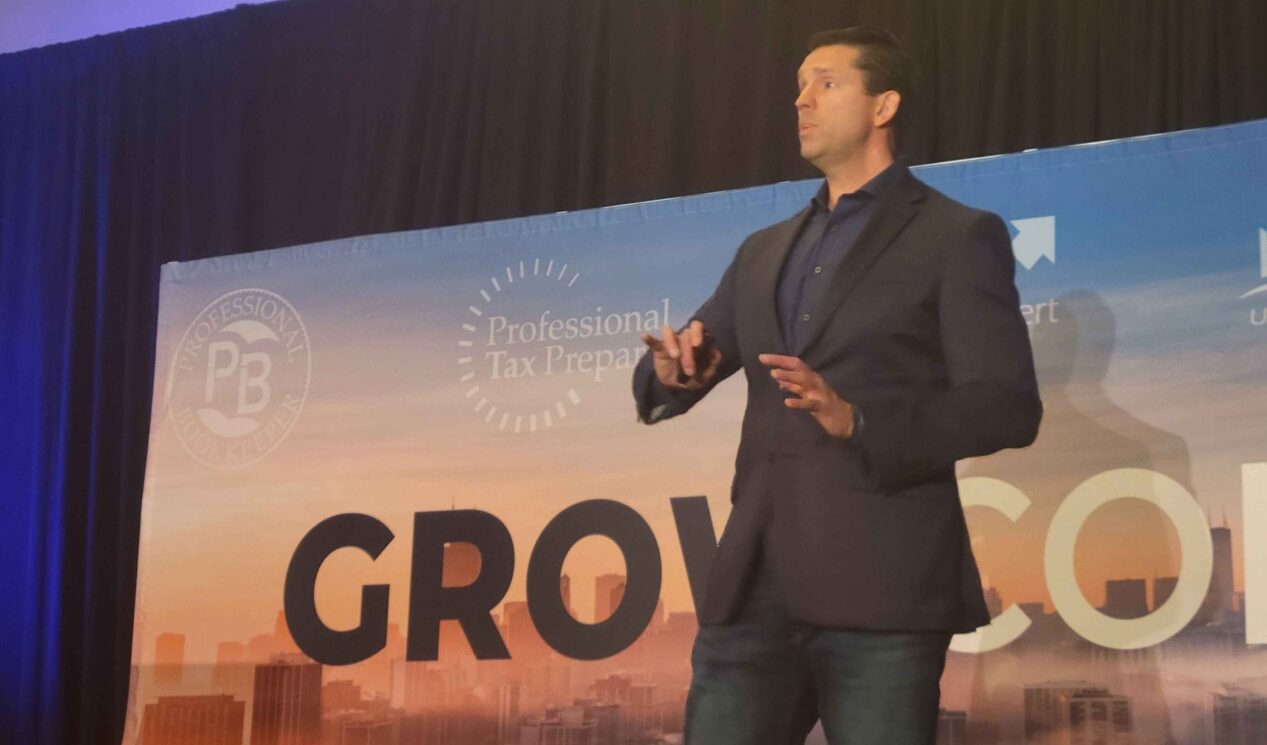 What Kind Of Tax Advantages Do Home-Based Businesses Enjoy?
What Kind Of Tax Advantages Do Home-Based Businesses Enjoy?
You have probably thought of many of the benefits of running your own successful accounting and bookkeeping service. From the independence of working for yourself to making better income than you may currently make, there are many reasons that starting a home-based business might be right for you. One consideration that you might not have taken into account is the tax advantages that you will enjoy with a business run out of your home. Let’s explore these qualifying deductions, starting with the better-known ones.
The Home Office Deduction
The deduction that likely comes first to mind that home-based businesses can take advantage of is the “Home Office Deduction”. The Home Office Deduction allows you to deduct some or all of the expenses of your office at home and related expenses.
To qualify for this deduction, your home office must be the principal place where your business is done. Secondly, the office space must be used exclusively for business use to qualify. For example, if you use your kitchen as your primary workspace, it is likely that you cannot take the home office deduction, assuming that you use it for personal use as well. To be on the safe side, set aside a room as your home office where possible. This will keep you on the safe side should the home office use ever come into question.
Detailed explanations of who qualifies for the Home Office deduction are defined in detail by the IRS themselves.
Building-Related Expenses
Repairs and improvements to your home office are completely deductible. For example, painting your home office is an expense that relates directly to doing business out of your home, so it is deductible in full.
Mortgage interest is deductible as a percentage of the total mortgage paid for your home. For instance, if your home office makes up 200 square feet of your home’s 2,000 square feet total, you can write off up to 10% of the mortgage interest for your home as a business cost. Similarly, if you rent your home, the percentage of your home used exclusively for business use would also be deductible.
Property taxes paid for your home also qualify at the same percentage rate as the mortgage.
Furthermore, if you own your home, you can depreciate the appropriate share of the home over 39 years.
Note that home expenses not related to your business, such as landscaping costs, cannot be deducted, even if you are beautifying the appearance of your home to enhance its appearance for business purposes.
How Much Total Can You Deduct?
You can deduct at most in home expenses for your home-based business what its net profit is. Thus, if you don’t make much net profit, neither will you be able to deduct many home office expenses. This covers expenses specific to your home itself, such as mortgage/rent and property taxes.
Security
You may deduct the business cost of security devices and monitoring fees as a percentage of the protected area used for business use of the entire protected area (normally the entire home). This is considered an indirect cost of doing business.
Insurance
If you own your home and pay home owner’s insurance, you may deduct a percentage of that expense, as with mortgage or rent expenses. If you have additional insurance coverage that covers things specifically for the business, you may deduct these expenses in full as direct business expenses. This may include special riders on your insurance policy to protect business equipment used exclusively for your business.
Additionally, if you incur a loss that is not covered by insurance, if it is equipment used exclusively for your business, you can deduct the entire loss. If the property lost is for things used both for personal and business use, you may deduct just the percentage of business use.
Utilities
Using the same percentage that you can write off of your home calculated above, you can write off utilities such as electrical, gas, and other utilities as business expenses.
Transportation
If you work primarily out of your home, you can typically write off the transportation expense of getting to and from your clients’ places of business and other business-related transportation costs. For the 2004 tax year, the standard cost per mile that the IRS allows you to deduct is 37.5 cents per mile.
Transportation as a deductible cost is one area where detailed records is critical. Typically, you will want to record the odometer mileage of your car before and after your trip to determine the number of miles traveled. Alternately, if you have places that you often travel to, you can just record the number of miles once and then multiply by the number of trips to determine total mileage This will prove much easier than recording each trip’s mileage
Moving Expenses
If you move, you can deduct the business portion of the move. For example, if half of the items to be moved were business-related, you could deduct 50% of your moving expenses. Note that moving expenses apply to sole proprietors, LLC’s, and S-Corporations only. They do not apply to C corporations.
If you have business-related moving expenses, use form 8829, “Expenses for the Business Use of Your Home” to report them.
Phones and Communications
For a home business, the first phone line into your home is considered by the IRS as a personal expense. Additional phone lines for business use, including cell phones used for your business, are tax deductible. Internet service provider fees or broadband costs such as high speed cable connections are deductible as a percentage of business use to total usage.
Meals and Entertainment
If you take a client or prospective client out to lunch and talk about your business, it is often tax deductible as a cost of doing business. If you are doing business out of town or at your convenience on a business-related task, you can typically deduct the amount of meals. If you are entertaining a client, the expenses related to the meeting are deductible if they have a business purpose.
Meals and Entertainment is one area that is often abused by small businesses, so if you plan to take deductions for these kinds of expenses, be sure to keep receipts. Also keep records of what the money was used for to avoid any kind of legal entanglements later on. As with most business deductions, as long as you stay within the IRS guidelines for what is allowed and keep good records, you can take this deduction safely.
You can only deduct 50% of the cost of meals and entertainment.
Tax Preparation Expenses
Though not specific to home-based businesses, the expenses that you incur to have your tax return itself prepared may be tax deductible.
Also, if you use tax-preparation software to prepare your own business’ tax returns, the cost of the tax preparation software is possibly deductible.
Software
Software used for business purposes are deductible as a business expense. Note that for software packages in excess of $500 in value, you may need to amortize (write off over a period of time) the software over 3 years. If you have purchased software that costs more than $500 per piece of software, consult the IRS guidelines for software deductions.
Educational Expenses
Educational expenses incurred directly to learn industry-specific skills needed for your business are often tax-deductible. For example, if you purchase the Professional Bookkeeper™ course to learn Accounting and Bookkeeping skills to start your business, this expense is tax deductible as a start up cost once your business is underway.
Record Keeping
Many small businesses let themselves get cheated every year by not taking deductions they are legally entitled to on their taxes for fear of being audited. As long as you stay within the IRS guidelines for what is and is not tax deductible and keep receipts and good records, you are safe to take the deductions you are legally entitled to. The Home Office Deduction in particular is a deduction that many have wrongly assumed makes them a target for an IRS audit.
If ever in doubt, go directly to the source, the IRS themselves. They publish many articles defining exactly what deductions you are entitled to so that you can be sure that you are in compliance with the law.
It may be advisable to consult a tax preparer for specific questions regarding what would or would not be deductible, and to what extent. For a thorough understanding of tax preparation for your own business or to prepare taxes for other businesses or individuals, you may want to look into training such as Universal Accounting®’s Professional Tax Preparer™ program. For many individuals and businesses, they save more on their taxes over a year or two than they spend on the course itself. Plus, they have the assurance that they are doing their taxes correctly and doing proper tax planning to reduce their tax liability.
A Great Home Business
As illustrated above, running a home business gives many tax advantages and deductions. One of the best home-based businesses going is starting your own successful Accounting and Bookkeeping service. You will make between $30 and $60 per hour out of your own home in a relaxed environment. The Professional Bookkeeper™ program teaches you step-by-step how to make a great income helping businesses manage their money.
Home Office Tax Advantages
For more infomation about home-based business advantages: Please look at our Professional Bookkeeper™ Course.








 Enroll or Ask Questions by Phone 1-877-833-7909
Enroll or Ask Questions by Phone 1-877-833-7909 We value your privacy
We value your privacy  Admit it, you have probably daydreamed about what it would be like not to have to show up for your job and to be more in control of your life. So just quit and be free! I know, let’s get real. Few of us have the money to live without the income that our current job provides. Ok, we need the money, but besides that, what is holding you to your job?
Admit it, you have probably daydreamed about what it would be like not to have to show up for your job and to be more in control of your life. So just quit and be free! I know, let’s get real. Few of us have the money to live without the income that our current job provides. Ok, we need the money, but besides that, what is holding you to your job?

 Enroll or Ask Questions by Phone 1-877-833-7909
Enroll or Ask Questions by Phone 1-877-833-7909 We value your privacy
We value your privacy